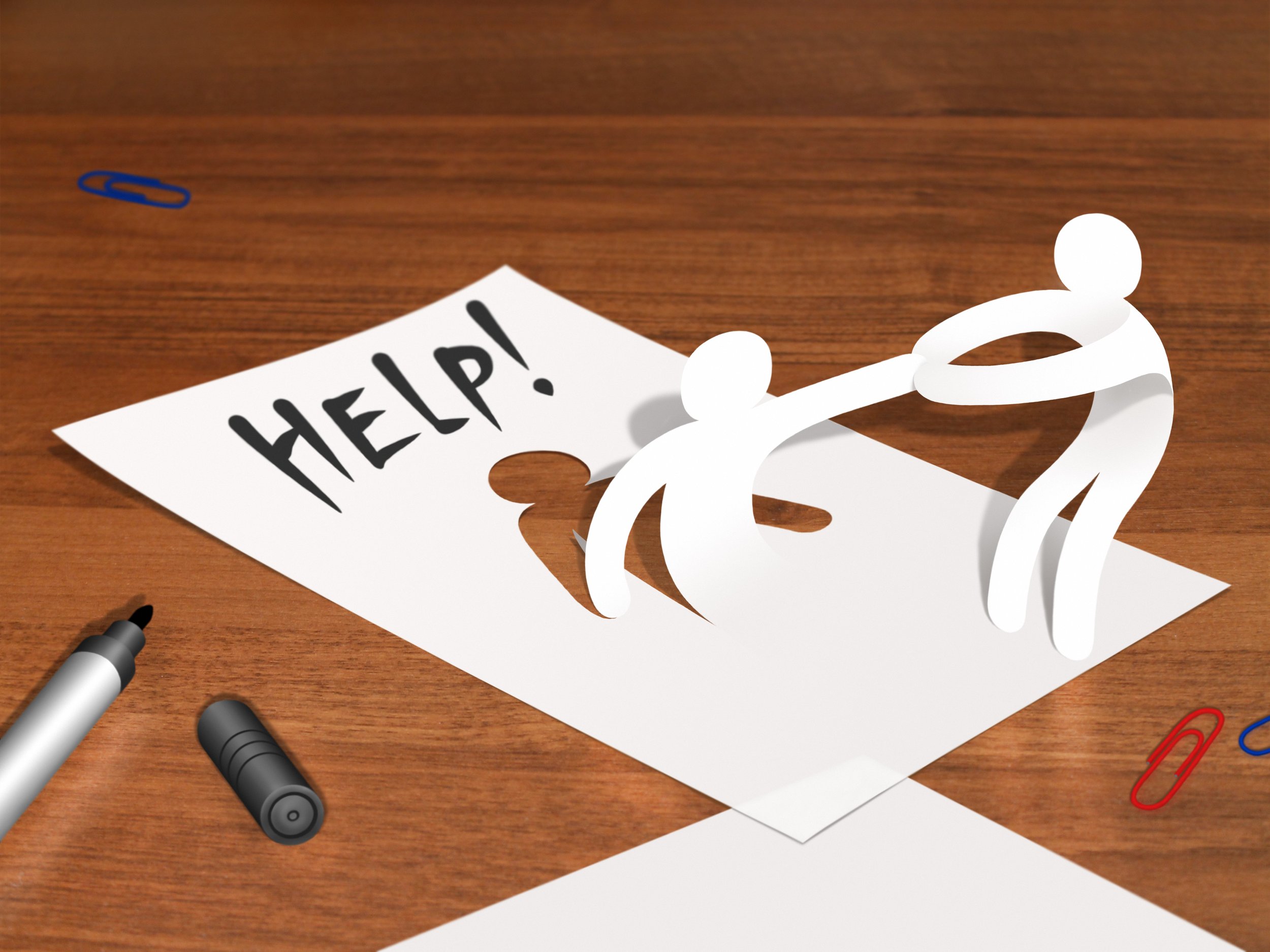Group Training
Proactive Stress Management and Wellness for Public Safety Professionals
National Certification Program Seal of Excellence from IADLEST association of Directors of Law Enforcement Standards
-
“The Guardians of Wellness” is a specialized program uniquely developed for law enforcement personnel. This training equips officers with crucial skills and strategies to manage stress, enhance resilience, and prevent suicides by educating officers preemptively. It aims to empower law enforcement professionals by providing them with the tools to prioritize their well-being while fulfilling their demanding roles.
This training is co-taught with LEO Adam Winkler, who brings an experienced perspective to the program with over twenty-five years of experience. With his extensive time in the field, Adam Winkler contributes invaluable insights and real-life examples to the training curriculum. As a LEO, Officer Winkler understands the challenges and pressures his fellow officers face, and his involvement in the training ensures that the content remains relevant, practical, applicable, and relatable.
Suicide prevention is a crucial issue within the law enforcement community. This program specifically addresses the problem of suicide among law enforcement personnel. It aims to break down barriers that often prevent individuals within this profession from seeking help. It also provides targeted strategies to promote mental health awareness, reduce stigma, and establish effective peer support networks.
Equipping participants with the necessary tools to recognize warning signs and foster a culture of support within their agencies, “The Guardians of Wellness” strives to create a safer and healthier environment for LEOs promoting mental well-being within the profession.
-
“Thriving Under Pressure” is a proactive stress management training course designed with the express purpose of educating and training police academy recruits with the skills they need to maintain good mental health.
Participants of this course will learn how to preemptively minimize the health risks of stress, trauma, burnout, and fatigue directly related to the law enforcement profession. Recruits will learn techniques that reduce stress in real-time, increase focus, improve sleep, and promote a longer, happier life.
Police academy recruits will acquire a comprehensive set of skills and knowledge that will support them throughout their future careers. By better understanding how to support themselves, recruits will be equipped with the stress management strategies to thrive in their public safety careers.
-
“Behind the Call” is a stress management and resilience training program designed to give 911 Dispatchers the tools and strategies to effectively manage stress in their high-pressure work environment. This training recognizes dispatchers’ unique challenges, helping them manage stress effectively to play a crucial role in emergency response systems.
Operators will explore evidence-based stress management techniques, such as mindfulness, breathing exercises, cognitive reframing, and stress reduction strategies. They will also learn how to recognize the signs of stress and burnout, implement effective self-care practices, and establish a support network within their professional community.
-
This experiential training program for the entire workforce focuses on stress management techniques, mindfulness practices, emotional regulation strategies, and effective self-care practices. By incorporating these elements, participants will gain valuable skills and knowledge to enhance their well-being, resilience, and overall job satisfaction.
Stress management techniques: Participants will learn various techniques to manage stress effectively. They will explore strategies to maintain a healthy work-life balance and develop skills to cope with high-pressure situations more effectively.
Emotional regulation strategies: Emotions play a significant role in our work experiences. Participants will learn strategies to recognize and regulate their emotions, enabling them to respond to challenging situations with greater composure and clarity. They will develop skills to navigate conflicts, manage interpersonal dynamics, and maintain positive relationships with colleagues and supervisors.
Effective self-care practices: Participants will explore various self-care practices, such as exercise, nutrition, sleep hygiene, and relaxation techniques. They will understand the importance of self-care in managing stress and preventing burnout and how it positively impacts their performance and overall quality of life.
Recognizing signs of stress and burnout: Participants will learn to identify signs of stress and burnout in themselves and their colleagues. This includes recognizing excessive stress levels' physical, behavioral, and emotional indicators. By being aware of these signs, employees can take appropriate actions to address stress proactively and support their colleagues in times of need.
Creating a supportive culture: The training will emphasize the importance of fostering a supportive culture within the department. Participants will acquire skills to support and empathize with their colleagues, creating a safe and nurturing work environment. They will learn effective communication techniques, active listening skills, and strategies for building trust and collaboration among team members.
By incorporating these components into the training program, organizations can empower their workforce to proactively manage stress, enhance well-being, and create a positive and supportive work culture. These skills and practices benefit individual employees and contribute to higher employee satisfaction, improved team dynamics, and increased productivity across the organization.
-
Investing in stress management training is essential for the well-being of correctional officers. Through these comprehensive techniques, officers can enhance their ability to handle the unique challenges of their profession, promote a healthier work environment, and better serve their communities.
Maximize Sleep Quality: Apply techniques to improve sleep quality and combat burnout.
Utilize Breathing Techniques: Master breathing techniques to lower heart rate, improve focus, and manage high-stress situations in real time.
Develop Emotional Agility: Explore various approaches to develop emotional agility while maintaining a sense of calm and focus in an authoritative role.
Lessen Anxiety: Learn methods to reduce anxiety effectively.
Prevent Empathy Burnout: Build inner resources to prevent the risk of empathy burnout and maintain emotional balance.
Recognize Suicide Warning Signs: Understand the warning signs of suicide in oneself and fellow officers, fostering a supportive environment.
Stress Management Training
This course consists of 4 hours of total instruction teaching participants to utilize skills to manage stress. To introduce powerful techniques that can be applied to an officer's daily life to calm the mind, stay focused, and better manage the high-stress situations and trauma of a career in law enforcement.
This specialized training combines resiliency techniques with stress reduction and breathing practices for tactical wellness. Participants learn several different approaches to minimize the health risks directly related to policing in today’s environment.
This includes:
Relevant statistics on policing and facts around the need for these tools. Scientific data that proves the short & long-term benefits of stress resilience.
Article
'And breathe': police try mindfulness to beat burnout
College of Policing to fund trial for more than 1,500 officers to combat stress-related sick leave
On-site for Agencies

“Persistence and resilience only come from having been given the chance to work through difficult problems.”
-Gever Tulley
A Training that gives your team tools to stay focused and healthy.
Manage stress
Meditation can wipe away the day’s stress, bringing with it inner peace. See how you can quickly learn to practice meditation whenever needed. By Mayo Clinic Staff
Improve resilience
Being resilient means having the capacity to recover quickly from difficult, stressful situations. Connecting via the breath to inner calm reclaims your ability to put one foot in front of the other, no matter what happens.
Feel better, live longer.
When you consciously breathe deeply, it stimulates the Parasympathetic nervous system, which serves as a counterbalance to our stress hormones. It calms us and helps us better focus on the moment we are in. This practice leads to a lower heart rate, blood pressure, and lower cortisol levels.


